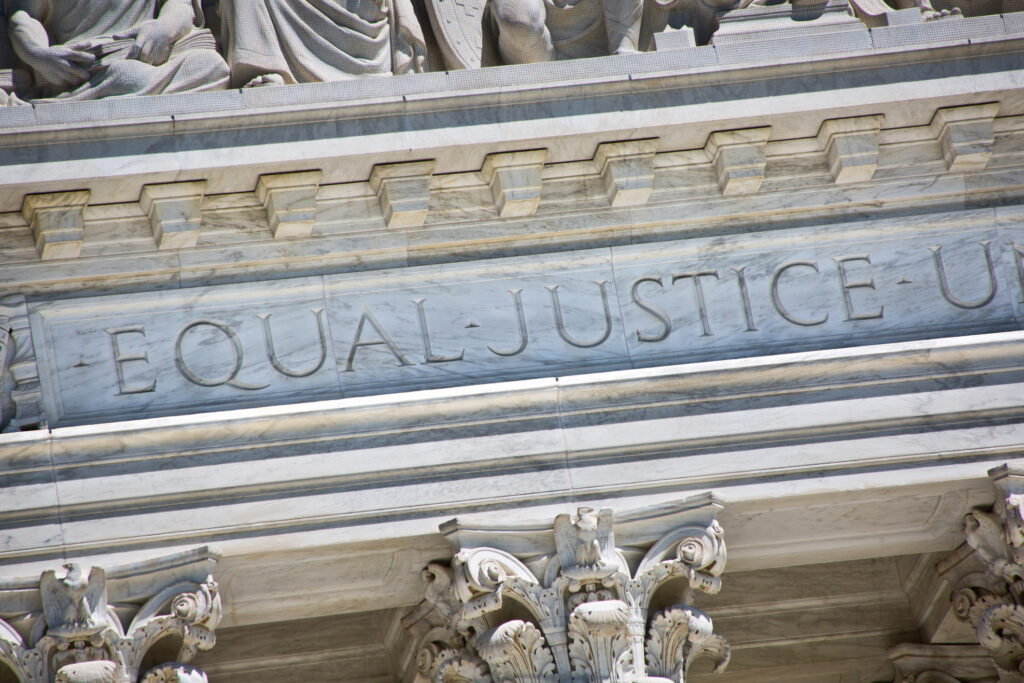
Supreme Court Set to Tackle Potential Expansion of Title VII Protections
Last Updated on June 24, 2023
Title VII of the Civil Rights Act of 1964 prohibits employment discrimination based on race, color, religion, sex and national origin. While the Equal Employment Opportunity Commission (“EEOC”) determined that discrimination based on sexual orientation violates Title VII, the lack of federal legislation addressing the issue has led to many heated debates and circuit splits over the years. Consequently, on April 22, 2019, the Supreme Court decided that it would hear three cases to finally put an end to the debate concerning whether Title VII of the Civil Rights Act of 1964 prohibits discrimination based on gender identity and sexual orientation. The three cases – Zarda v. Altitude Express, Inc., Bostock v. Clayton County, Georgia, and Stephens v. R.G. & G.R. Harris Funeral Homes, Inc. – address the extent to which Title VII affords members of the LGBTQ (lesbian, gay, bisexual, transgender and questioning) community protection from discrimination by employers. Although federal courts have reached different conclusions when confronted with this issue, the Supreme Court’s decision will finally provide a definitive answer and significantly impact the workplace for years to come.
Zarda v. Altitude Express, Inc.
In Zarda v. Altitude Express, Inc., the Second Circuit Court of Appeals held that discrimination based on sexual orientation is prohibited under Title VII. While Title VII does not contain any language addressing sexual orientation discrimination, the Second Circuit Court of Appeals concluded that Title VII should be interpreted to extend its protections to include this particular form of discrimination. The issue arose when Donald Zarda, who worked as a skydiving instructor for Altitude Express Inc., was fired after revealing his sexual identity to a customer during a skydiving session. In 2010, Zarda, who is now deceased, took a young couple up for a tandem skydiving session. While strapping himself to the female customer, he jokingly told her that he was gay to minimize any concern that she may have had about them being in such close proximity to one another. The client later alleged that Zarda inappropriately touched her during the session and only revealed his sexual orientation in order to avoid the consequences of his behavior. Zarda denied the allegations, stating that he did not inappropriately touch the customer. Instead, he argued that he was terminated based on his sexual orientation and because he did not conform to male gender stereotypes. Once the case reached the Second Circuit Court of Appeals, an en banc[1] panel of judges determined that since sexual orientation discrimination is partially motivated by sex, it is a subdivision of sex discrimination. Accordingly, the Court held that since sex discrimination is prohibited under Title VII, sexual orientation discrimination should be prohibited as well.
Bostock v. Clayton County, Georgia
Contrarily, in Bostock v. Clayton County, Georgia, the Eleventh Circuit Court of Appeals held that discrimination based on sexual orientation is not prohibited under Title VII. In this case, Gerald Bostock, former Court Appointed Special Advocates (“CASA”) Director for Clayton County’s Juvenile Court System, was terminated by Clayton County for allegedly engaging in conduct that was “unbecoming of its employees” and mishandling CASA funds. Bostock filed suit under Title VII stating that he was subject to homophobic comments about his participation in the Hotlanta gay softball league and was fired, not for improperly handling CASA funds, but because he was gay. In November of 2017, the United States District Court for the Northern District of Georgia dismissed the case; and in May of 2017, the Eleventh Circuit denied Bostock’s petition for an en banc hearing and reaffirmed the district court’s finding that Title VII does not protect against sexual orientation discrimination.
Stephens v. R.G. & G.R. Harris Funeral Homes, Inc.
Lastly, in Stephens v. R.G. & G.R. Harris Funeral Homes, Inc., a case involving gender identity discrimination, the Sixth Circuit Court of Appeals became the first federal appellate court to extend Title VII’s protections to transgender and transitioning employees. In this case, Aimee Stephens, a transgender woman, began working as a funeral director for R.G. & G.R. Funeral Homes, Inc. When she applied for the position in 2007, she applied under her then-legal name, William Stephens, and presented herself as male. After working for the funeral home for six years, she wrote a letter to the owner of the funeral home informing him about her gender identity disorder and stating that she intended to transition from male to female. The owner, a devout Christian, did not approve of Stephens’ transition and terminated her shortly after receiving the letter. While the district court ruled that transgender persons are not protected under Title VII, the Sixth Circuit Court of Appeals overturned the decision and ruled in favor of Stephens.
Impact of Anticipated Supreme Court Decision on Employers
While many state and local governments prohibit discrimination based on sexual orientation and gender non-conformity, others have not afforded any protection to members of the LGBTQ community regarding workplace discrimination. Thus, the Supreme Court’s decision can and will dramatically impact the future of employment. A decision in favor of prohibiting discrimination based on sexual orientation and gender non-conformity under Title VII may require many employers to change their policies, training and orientation documents, handbooks and procedures. The Supreme Court is expected to render a final decision by the end of the year. In the meantime, it is imperative that employers stay abreast of the issue and monitor the status of the cases.
Many thanks to law clerk Tatyana Bailey for her input in researching and drafting this article. If you have questions about this impending court decision or other employment law-related issues, please contact Connie Carrigan at ccarrigan@smithdebnamlaw.com.
[1] An en banc session is one in which a case is heard before the entire bench of judges as opposed to a selected panel of judges.

